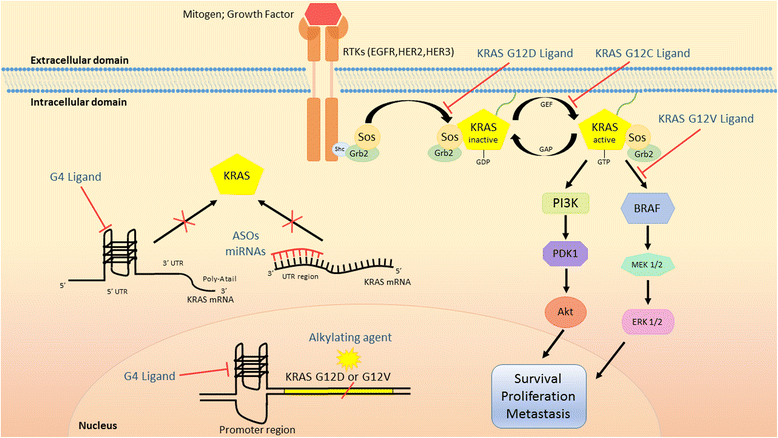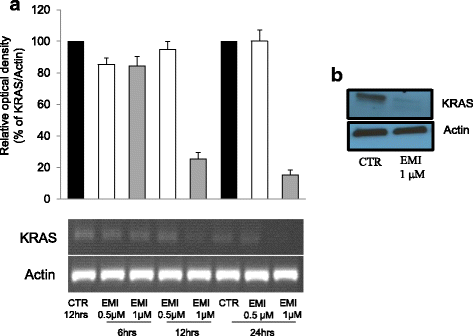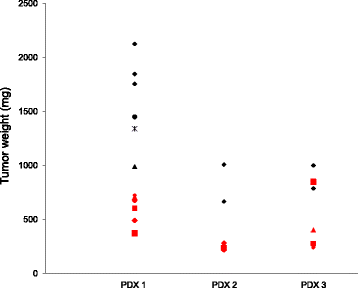Targeting KRAS in metastatic colorectal cancer: current strategies and emerging opportunities
- PMID: 29534749
- PMCID: PMC5850913
- DOI: 10.1186/s13046-018-0719-1
Targeting KRAS in metastatic colorectal cancer: current strategies and emerging opportunities
Abstract
Developing drugs that target KRAS, the most frequently mutated oncogene in cancer, has not been successful despite much concerted efforts dedicated towards it in the last thirty years. Considering the key role this driver oncogene plays, the pharmacological drugging of KRAS remains a key challenge for cancer research. In this review, we highlight the emerging experimental strategies for blocking KRAS function and signaling and its direct targeting. We also report on the results in this field of research produced by our group.
Conflict of interest statement
Competing interests
The authors declare that they have no competing interests.
Authors’contribution
MP and LP carried out the experiments presented in Figs 2, 3 and in Table 1. LP prepared the Fig. 1. AB and CL designed experiments and wrote the manuscript. CC discussed data and participated inthe writing of the manuscript. All authors read and approved the final manuscript.
Publisher’s Note
Springer Nature remains neutral with regard to jurisdictional claims in published maps and institutional affiliations.
Figures



References
-
- Cassidy J, Clarke S, Díaz-Rubio E, Scheithauer W, Figer A, Wong R, et al. Randomized phase III study of capecitabine plus oxaliplatin compared with fluorouracil/folinic acid plus oxaliplatin as first-line therapy for metastatic colorectal cancer. J Clin Oncol. 2008;26(12):2006. doi: 10.1200/JCO.2007.14.9898. - DOI - PubMed
Publication types
MeSH terms
Substances
Grants and funding
LinkOut - more resources
Full Text Sources
Other Literature Sources
Medical
Research Materials
Miscellaneous

